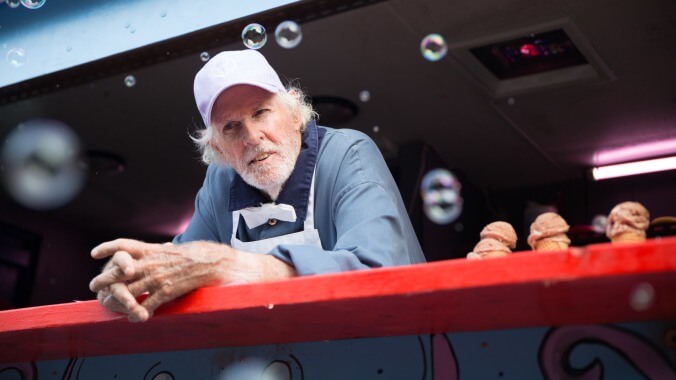A mutant girl, a paranoid dad, and an ice-cream truck star in the indie superhero flick Freaks

Tod Browning’s Freaks (1932), a nightmarish pre-Code horror film populated by actual carnival sideshow performers, is the rare masterpiece that not only couldn’t, but probably shouldn’t, be remade. Thankfully, the only thing that first-time filmmakers Adam Stein and Zach Lipovsky have borrowed for their own Freaks is Browning’s title. Genetic anomalies still figure in the plot—or probably do, anyway; the origin of these particular “abnormals,” as the U.S. government labels them, remains mysterious throughout—but these characters are more Psylocke and Quicksilver than modern-day versions of the Living Torso or the Armless Girl. Indeed, this Freaks functions as a small-scale X-Men origin story in all but name, pitting sympathetic, powerful, persecuted mutants (again, presumably—they could be humanoid extraterrestrials) against a “normal” society that seeks to either weaponize or destroy them. It’s all very familiar, especially of late, but seeing it so skillfully accomplished on an indie budget is quite impressive.
For a while, Stein and Lipovsky (who wrote the screenplay in addition to co-directing) keep the action entirely restricted to a single house, occupied by a roughly 9-year-old girl named Chloe (assured newcomer Lexy Kolker) and her extremely paranoid father (Emile Hirsch), who refuses to let her outside and constantly drills her on the details of a fake identity. He also occasionally bleeds out of his eyes, which turns out to be one of the few ways to quickly identify an “abnormal.” Chloe, for her part, initially appears to be an ordinary kid, understandably obsessed with the Mr. Snowcone ice-cream truck that she sees other kids frequent from her window.
But Mr. Snowcone himself (Bruce Dern) seems to have an unhealthy interest in this potential customer, as Chloe gradually reveals an ability to influence others telepathically from a distance, and even transcend great distances mentally. By the time a special agent (Battlestar Galactica’s Grace Park) shows up at the house to ask some discomfiting questions, there’s a cruise missile at the ready overhead, though Chloe is too busy psychically assisting her imprisoned mother (Amanda Crew) to pay that threat much attention.
Though made comparatively on the cheap, and highlighting such inexpensive powers as invisibility and mind control, Freaks suffers from the same basic problem that frequently afflicts the X-Men movies: These mutants (or aliens, or whatever they are) come so close to omnipotence that it’s hard to perceive them as victims, even metaphorically. (Dad has even kept Chloe safe in part by making time move slower outside of their house, so that she’s aged nearly a decade in what everyone else registers as just a couple of months.) But the film shrewdly keeps us inside Chloe’s head, filtered through her very limited comprehension of her burgeoning and truly awesome abilities.
The result plays like a slightly more benign version of the classic short story-turned-Twilight Zone episode “It’s A Good Life,” as various adults—some of them fairly “super” themselves—attempt to avoid setting off the willful ungovernability of a frustrated child. Stein and Lipovsky may imagine this as an unorthodox origin story in a larger franchise, and that might even be feasible if such a franchise hadn’t already been largely exhausted. As is, they’ve demonstrated that they fit right into the prevailing studio climate. Expect to see them get more money to play with next time; if we’re lucky, that freedom will give their imagination a corresponding boost.